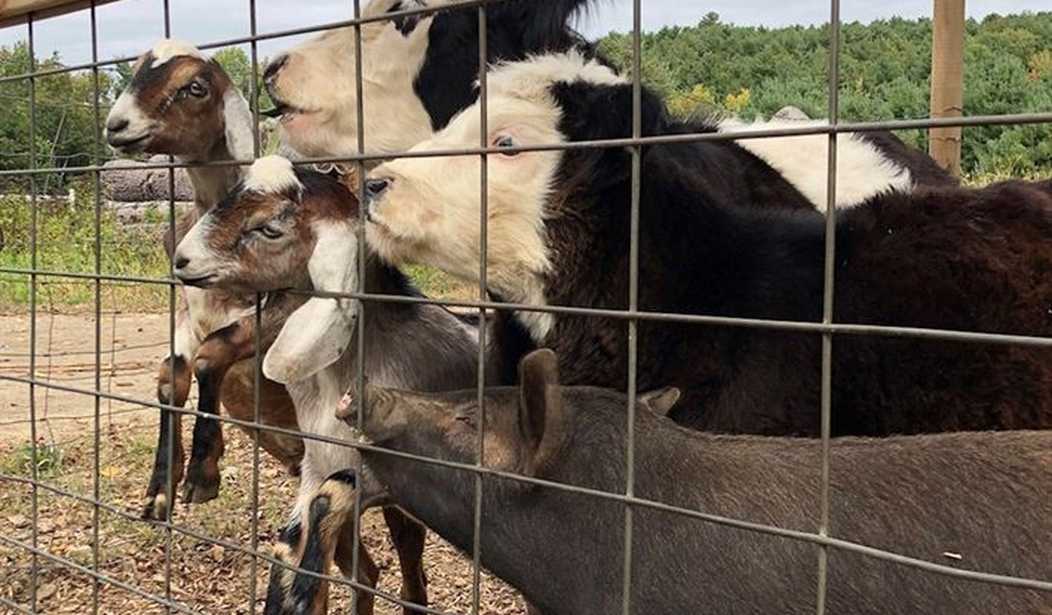Last week, the U.S. Department of Agriculture (USDA) released its first list of grant recipients for the Partnerships for Climate-Smart Commodities program. In typical big government fashion, this first round of 70 recipients — to the tune of a total of $2.8 billion — is the largest group of winners of largesse, with projects asking for $5 million to $100 million.
The federal government will announce the list of smaller grant winners from a pool of 450 applicants asking for $18 billion in taxpayer money. The USDA criteria for doling out funds to larger projects included the mitigation of greenhouse gases, but for the smaller projects, the program adds greater scrutiny for “Equity/Environmental Justice (EJ)/Minority Serving Institutions (MSI) Reach.” Of course.
White Oak Pastures in Bluffton, Ga., applied for a grant in conjunction with its own Center for Agricultural Resilience, but the USDA didn’t select White Oak to receive funds.
You might remember White Oak Pastures from when its owner, Will Harris, took on Bill Gates for the billionaire’s purchase of massive amounts of farmland. The ever-opinionated Harris explains his “sour grapes” with the USDA on the farm’s blog.
“As some of y’all know, we have been grazing our sheep underneath large utility-sized solar arrays for over two years,” Harris writes. “We see it as a win-win for farmers, energy companies, and the planet. We also see it as a way for underserved farmers to gain access to land without having to come up with a huge cash outlay.”
“We wanted to expand this practice and then offer classes to others to teach them to do it,” he continues. “I thought that it would be considered to be a great project.”
Related: American Farmer Puts Bill Gates on Notice
Alas, the grant wasn’t in the cards, but Harris pointed out some of the recipients of grants, and these names may raise your blood pressure. Among the Lead Partners and Major Partners who received federal money are the following corporations:
- Pepsico
- Cargill
- JBS
- Coca-Cola
- John Deere
- Microsoft
- Butcher Box
- Nestle-Purina
- Walmart
- Anheuser-Busch
- Smithfield Foods
- Blue Apron
- ADM
- Nutrein Ag Solutions
- Target
- Bayer
- McDonalds
- Mars
- Unilever
- Campbell’s Soup
To be fair, there are individual farms, smaller businesses, and educational institutions that received grant money, but these corporations and other large companies have their hands in these projects.
Why do these massive, multi-national corporations need federal money for these projects? And why are the same leftists who complain about big companies making too much profit so eager to throw big government money at these same corporations? It must be because they’re producing projects that target climate change, aim for minority communities, and promote “equity.” (And as an aside, isn’t it odd how the environmental movement has sold out to the racial-grievance hucksters these days?)
Never one to hold back, Harris says exactly what we’re all thinking.
“Who on earth would be better qualified to develop environmental solutions than the multinational companies who were complicit in f-cking our climate up[?]” he concludes.
He has a point: we shouldn’t trust these corporations to do anything good for the environment. Nor should we trust the government to dole out money in a way that might actually be more equitable than trying to score political points.
The USDA is picking winners and losers — both in who benefits from the federal largesse and who ultimately could benefit from these projects. And for so much taxpayer money to go toward large companies rather than to the farms that are doing the work at the ground level is a shame. Because helping independent farmers might genuinely achieve “equity” and benefit the environment more than throwing billions of dollars at corporations.










Join the conversation as a VIP Member